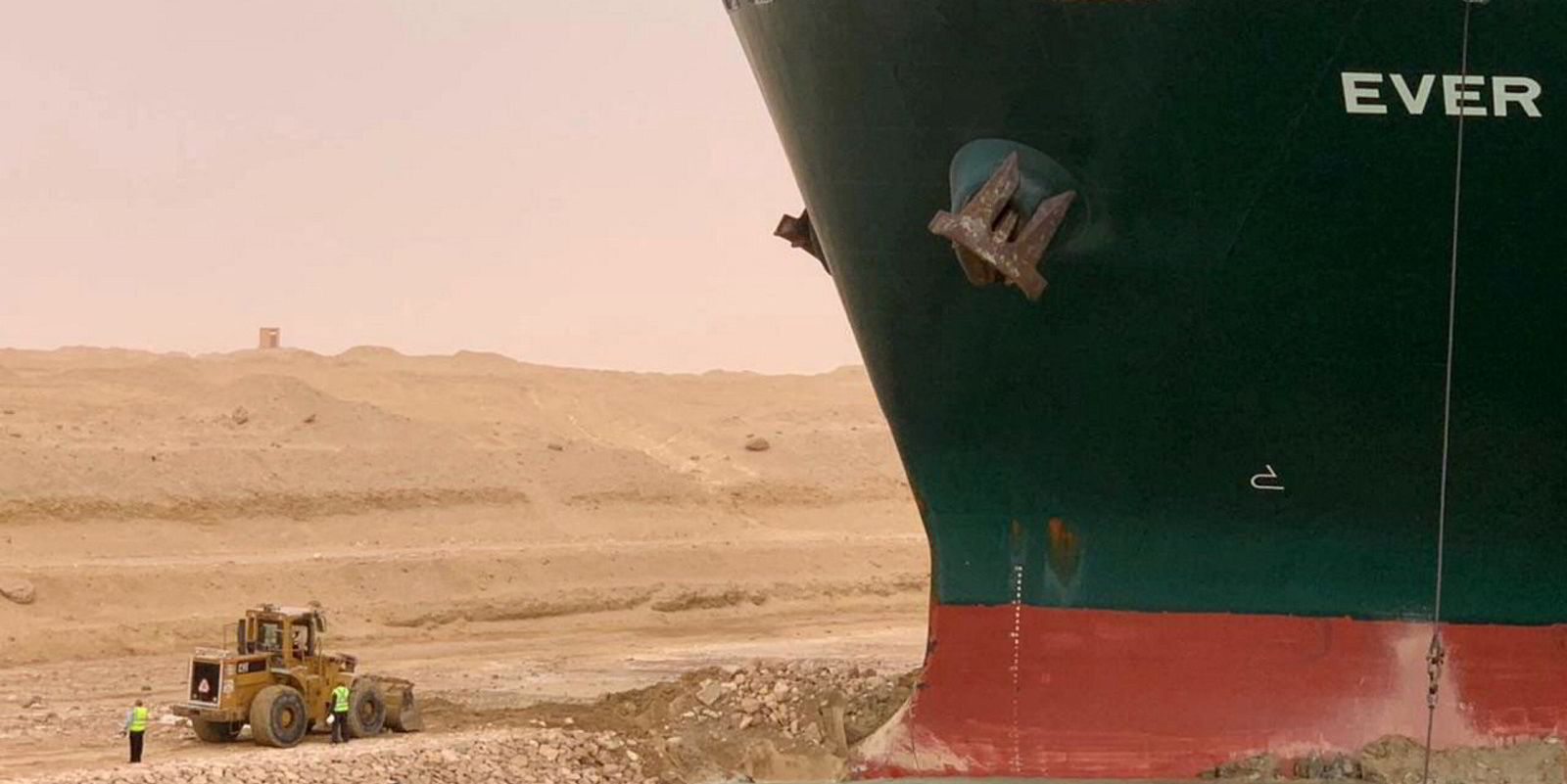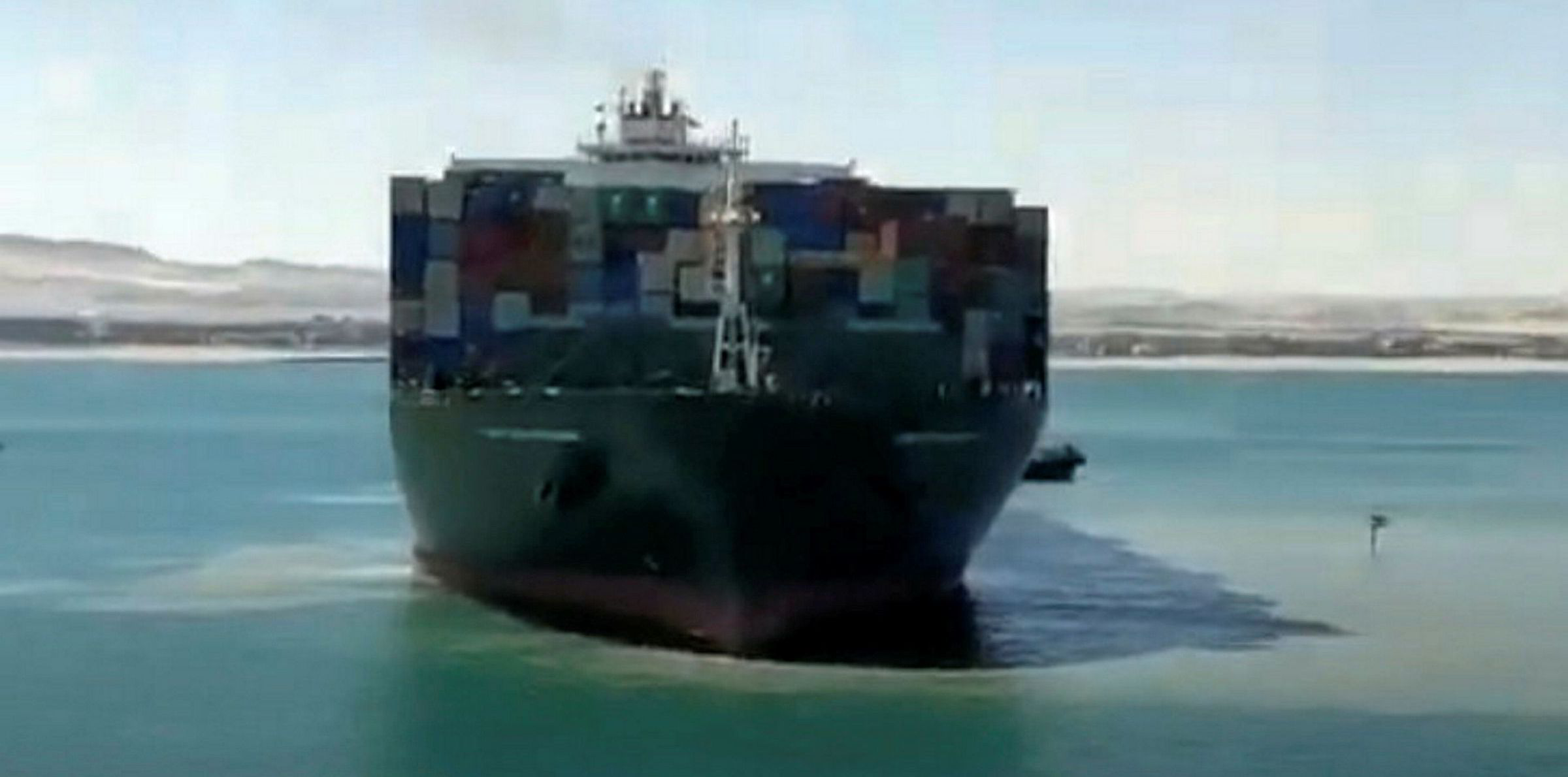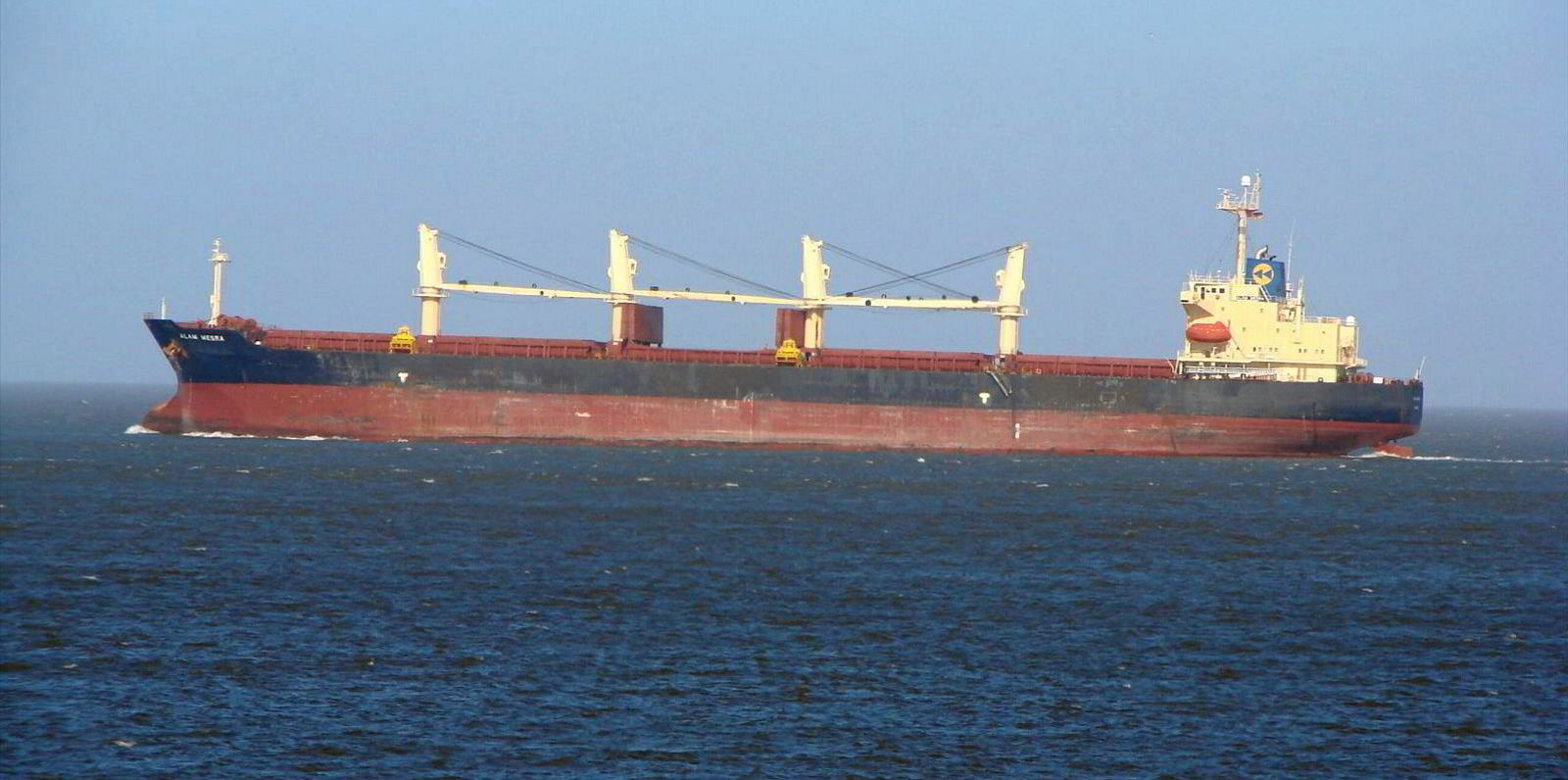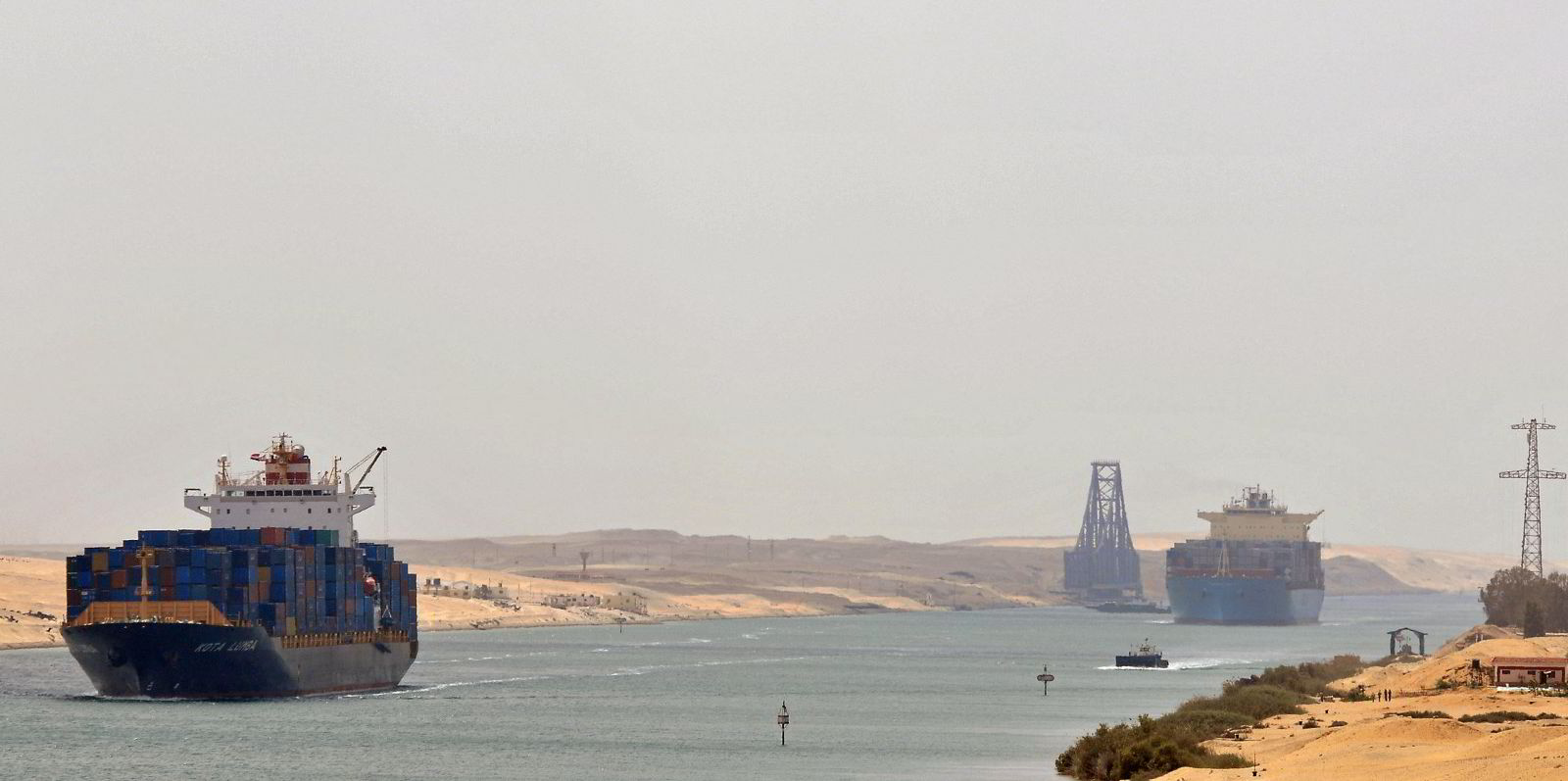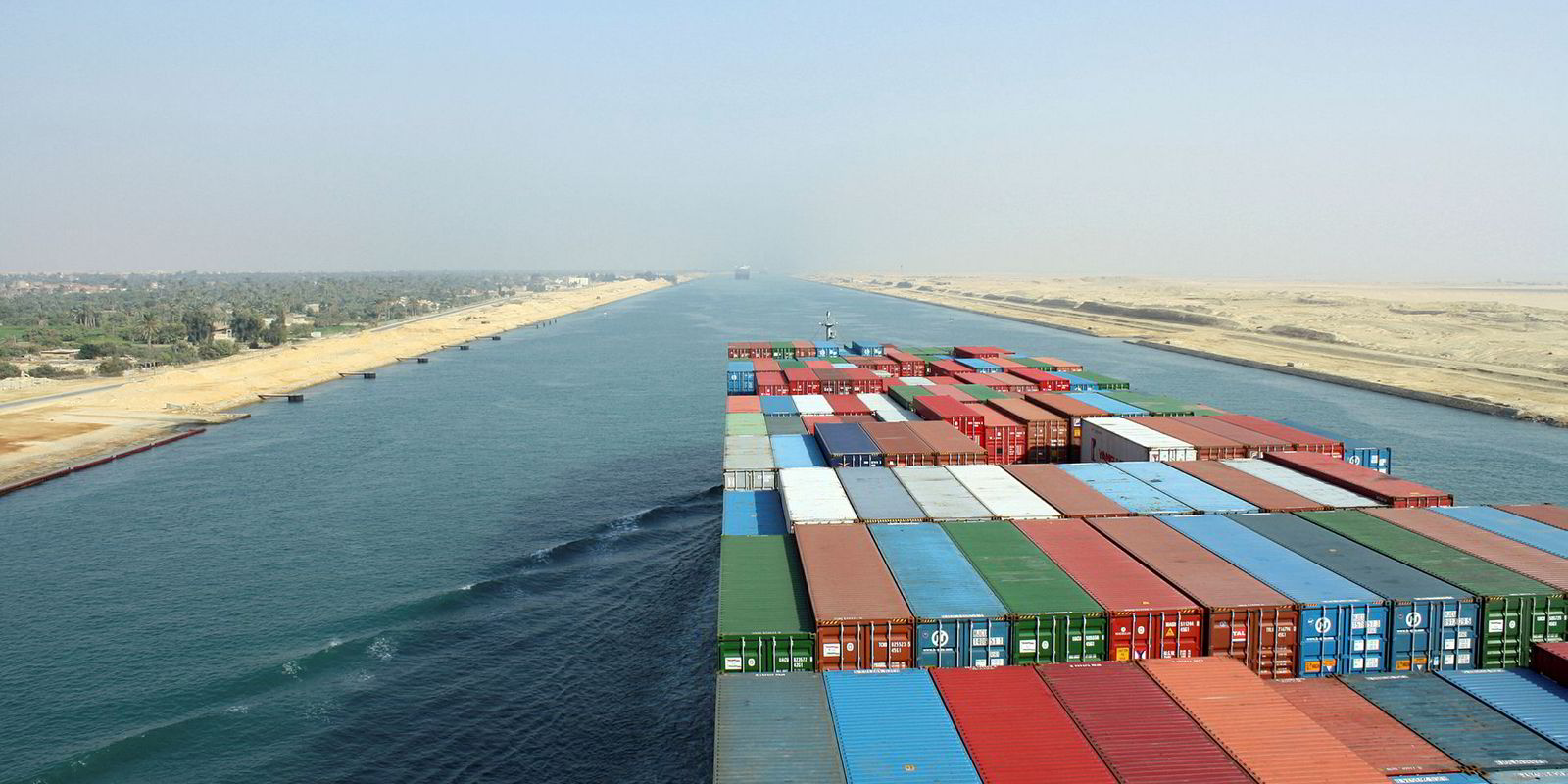A large backlog of ships has been building at both ends of the Suez Canal since Tuesday after an Evergreen Marine-controlled containership got stranded in the Egyptian waterway's southern section.
Gulf Agency Co (GAC) said the 20,388-teu Ever Given (built 2018) ran aground around the 151 km mark in the canal on Tuesday morning and has been blocking all traffic.
As of noon local time (10:00 GMT) on Wednesday, the vessel was partially refloated and sat alongside the canal bank. Convoys and traffic are expected to resume as soon as the ship is towed to another position, GAC added.
The Ever Given is owned by Japan’s Shoei Kisen and operated on long-term charter by Taiwan's Evergreen. Protection and indemnity coverage for the vessel is provided by the UK P&I Club, according to IHS Markit data.
Evergreen said in a media statement earlier on Wednesday that the Ever Given “was grounded accidentally after deviating from its course due to suspected sudden strong wind”.
Egyptian weather forecasters said high winds and a sandstorm plagued the area on Tuesday, with winds gusting by as much as 50 km (31 miles) per hour.
Bernhard Schulte Shipmanagement, the vessel's manager, said there had been no reports of injuries or pollution.
With the salvage expected to take at least two days, Fearnley Securities said an estimated 50 vessels per day would be stuck.
"From a shipping point of view, delays and congestion tends to have a positive effect, though it remains to be seen how long and how impactful the current situation will turn out to be," the investment bank said.
Clarksons Platou Securities said a stoppage of a few days could have an impact on shipping capacity in the rest of the world, which is generally good for freight rates.
"While we would expect this to a be short-lived effect, the containership industry is already very tight on capacity with significant port congestion around the world," said the investment banking arm of broker Clarksons.
"More than 4% of the global containership fleet is idle in ports and yards today."
The Ever Given was seen stuck as of Wednesday morning, wedged across the canal with its bow embedded in the eastern wall and its stern almost touching the other side.
Seven tug boats operated by the Suez Canal Authority and Svitzer were attending to the casualty.
A person on a containership directly behind the Ever Given at the time it ran aground posted a photo of the incident.
“Ship in front of us ran aground while going through the canal and is now stuck sideways, looks like we might be here for a little bit,” Julianne Cona wrote on Instagram.
The southern section of the Suez Canal is a single lane stretch and any blockage effectively shuts all traffic from completing a full transit.
GAC said the Ever Given was proceeding northbound through the canal when it ran aground.
“None of the vessels before it were affected, but the 15 behind it were detained at anchorages waiting for the canal to be cleared,” the agency said. “The southbound convoy was also blocked.”
On Wednesday, MarineTraffic showed over 70 ships waiting at the southern anchorage and 56 in the canal.
“The majority of these are tankers and cargo vessels, of various sizes. Although there are three passengerships, and a number of tugs there too,” the data provider told TradeWinds.
TradeWinds reported on Wednesday that industry experts forecast that the Ever Given incident would provide a short-term boost to container rates, while tanker and bulker owners could also benefit.
VesselsValue data showed 56 ships were at anchorages or terminals within and around the canal as of Wednesday. That includes two LNG carriers, three LPG carriers, 12 bulkers, 13 boxships and 26 tankers.
The Suez Canal Authority reported in January that 18,829 ships with a net tonnage of 1.17bn tonnes passed through the canal during 2020. That averages out at 51 ships per day.
Groundings in the canal do happen from time to time, although most ships are refloated within a matter of hours.
The worst safety incident took place in July 2018 when three bulkers and two containerships were involved in a multi-ship pile-up that led to the temporary closure of the southern section of the canal.
The Suez Canal Authority could not be reached for comment.
